Archaeology
-
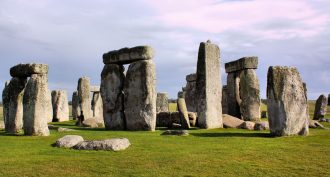 Archaeology
ArchaeologyCremated remains hint at who was buried at Stonehenge
A chemical analysis shows that people carried bodies from far away to be buried at the mysterious ancient monument known as Stonehenge.
By Bruce Bower -
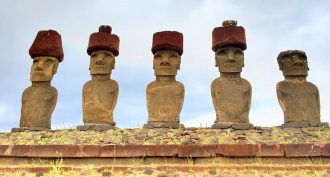 Archaeology
ArchaeologyPutting hats on Easter Island statues may have required some rock and roll
Fitting huge stone hats on 3-story-high Easter Island statues may have required only a small workforce armed with ropes and ramps.
By Bruce Bower -
 Materials Science
Materials ScienceCool Jobs: Drilling into the secrets of teeth
A bioengineer, a biologist and an archaeologist all study teeth to explore new materials, to grow better tissues and to learn more about prehistoric humans.
-
 Archaeology
ArchaeologyScientists detect mystery void in Great Pyramid of Giza
Using high-tech tools normally reserved for studies in particle physics, scientists have found a large, hidden void inside Egypt’s Great Pyramid of Giza.
-
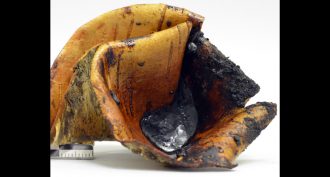 Archaeology
ArchaeologyFiery tests suggest gooey tech by Neandertals
Neandertals could have used simple methods and handy materials to make tar. It would have helped them glue their tools together.
By Bruce Bower -
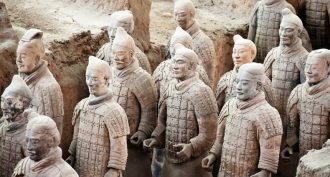 Archaeology
ArchaeologyClay reveals secrets of China’s mysterious terra-cotta army
Production of the famous terra-cotta troops found in ancient Chinese emperor’s tomb was made possible by a specialized system of clay manufacturing.
By Bruce Bower -
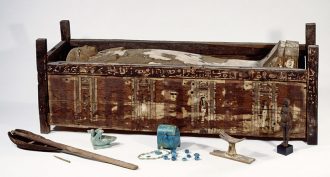 Archaeology
ArchaeologyDNA from African mummies tie these folk to Middle Easterners
Ancient DNA extracted from 90 Egyptian mummies reveals genetic links to Greece and the Middle East.
-
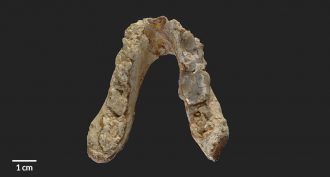 Archaeology
ArchaeologyEuropean fossils may belong to earliest known hominid
New fossils suggest that the earliest non-ape human ancestors may have evolved in Europe, not Africa.
By Bruce Bower -
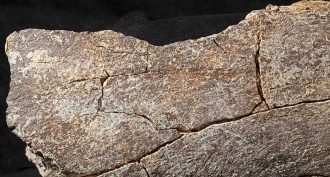 Archaeology
ArchaeologyAmerica’s first settlers may have arrived 130,000 years ago
An archaeological site where mastodon remains were found suggests that the first Americans may have arrived unexpectedly early.
By Bruce Bower -
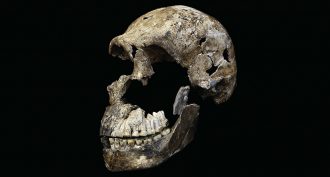 Fossils
FossilsThis hominid may have shared Earth with humans
Newfound fossils in South Africa point to a far more recent age for Homo naledi than had been accepted. If correct, this hominid might have coexisted with humans — even interacted with our species.
By Bruce Bower -
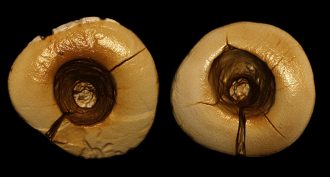 Archaeology
ArchaeologyStone Age dentists treated cavities with tar
Is Italy the home of dentistry? That’s where treated tooth decay has been found, dating back 14 millennia. Cavities appear picked clean with sharp tools. Ouch!
By Bruce Bower -
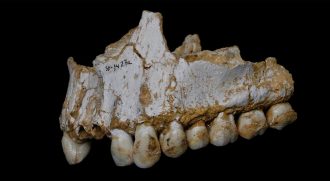 Science & Society
Science & SocietyFossils point to Neandertal diets — and medicine use
Whether Neandertals were largely meat-eaters or vegans depended on their environment, fossils now suggest. Their teeth also indicate they used natural medicines.